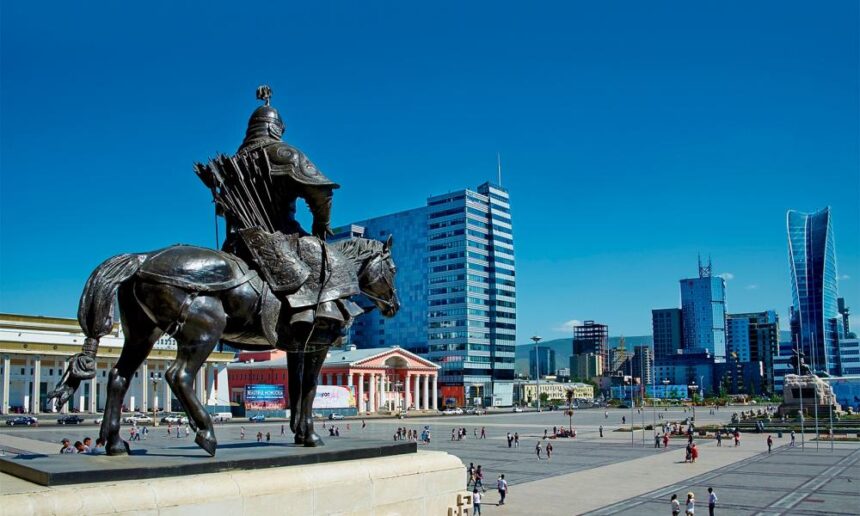The private sector is the main engine that drives the economy forward. The core of the private sector is the small and medium enterprises (SMEs), which employ the largest number of people. Definitions could vary country to country, but SMEs are mostly defined by the number of their employees and the amount of their annual revenue. The Law on Small and Medium Industry of Mongolia defines SMEs as enterprises that employ up to 199 people and have an annual revenue of less than 1.5 billion MNT. Mongolia has more than 70,000 economic entities, 90 percent of which fall under the category of SMEs. Therefore, the government administrations we have had have always emphasized the development of SMEs through soft loans and tax subsidies.
It is constantly complained about in the press that soft loans provided by the government have always gone to economic entities that have connections and associations with government officials. Also, there is a lack of reporting that provides information on the outcomes of the government’s soft loans: how were the enterprises expanded, what goods and services were exported, which SMEs achieved import replacement, and were the loans repaid or not?
There are almost no trade associations that carry out detailed studies on the difficulties preventing the development of SMEs, which have the most important role in the economy, and no one publishing general information and raising issues based upon the studies. These associations are doing nothing more than obtaining support and soft loans from the government.
Dedicating each year to the development of a specific industry and providing soft loans has not aided SME competitiveness. For instance, what results were produced from the 200 million USD provided by the government to cashmere factories? By what percentage did our exports of cashmere products increase? The reality is that our cashmere factories today are still attempting to get loans only for their turnover capital. Is it enough that the government is acquiring foreign loans through issuing bonds and distributing loans to SMEs?
MISGUIDED GOVERNMENT POLICY
As mentioned above, the policy pursued by our government to develop SMEs offers nothing more than providing soft loans. As a result, our business owners and entrepreneurs have started to see the government as a humanitarian organization that offers a cheaper means of funding. Moreover, the government has been conducting policies aimed at maintaining macroeconomic stability, carrying out heavy industrialization and granting advantages to specific companies as well as industries. Companies now have a habit of spending many years trying to have the government issue a guarantee before commencing a large project.
The development level of Mongolia today can be classified as below average with weak infrastructure and an economy dominated by state-owned companies. As a result, the government involvement in economy has become so great that politicians and businessmen today are indistinguishable. Our government also restricts the prices of electric power and petrol. These are the reasons why our SMEs identified their main objective as having connections to the government and acquiring favorable conditions and government guarantees. Our SMEs increasingly believe that it is okay not to repay their soft loans once acquired.
If you look at the experiences of developed countries, you will see that those countries turned their comparative advantages into competitive advantages by shaping their primary factors of production into more advanced factors. With their government in debt, Mongolians today are still struggling with the primary factors of production that reflect the natural resources we have, our climate and geographical location. Furthermore, the majority of our workforce is still composed of unqualified and semi-qualified people.
It has been a long time since we came to face the need to transform the previously mentioned primary factors into more advanced factors. It can be achieved by employing the modern infrastructure of digital information and communication, making the best out of our qualified workforce, including highly skilled engineers, technicians, scientists and scholars, and connecting businesses with research and development organizations.
The first thing that has to be done by the private sector of Mongolia is to develop strategic plans for SMEs to create more advanced factors of production, encouraging the expansion of companies, and making them more competitive. In order to make substantial progress on developing advanced factors of production, the government needs to minimize its involvement in the economy and transfer the ownership of state-owned companies to the public through privatization.
Real progress can only be achieved when the government stops getting involved in setting prices and focuses its every policy and action intended to develop SMEs on improving the efficiency of Mongolian businesses and supporting free competition. We should not weaken our focus on safety and environmental standards when taking such measures.
It will create policies and regulations that support every step towards improving production processes, encouraging innovation, and increasing the efficiency of business resources and infrastructure. The government will need to take more action in freeing business relations from obstacles, introducing qualified education and training, and building good infrastructure.
CLUSTER DEVELOPMENT
In order to bring about development to our country, we need to improve the productivity of our laws, policies and institutions at all levels and establish infrastructure that supports free trade. It is also important to constantly improve and maintain such infrastructure.
Specialization needs to be achieved in order to acquire a competitive advantage and improve productivity. Businesses, suppliers and specialized institutions should start locating themselves in the same facilities where companies are specialized. A concentration of interconnected companies at one location is called an industry cluster.
When there is an industry cluster with many players in fierce competition, a company acquires advantages not only internally but also in its external environment. Companies come to have common values and share a network of labor, information, productivity and market. At the same time, trade associations have an increased role and influence. Companies in such clusters also cooperate with the government to build infrastructure.
We should look at the experiences of Chile, which are similar to ours in having a dependence on a single copper deposit and developing at a greater pace owing to business clusters. Such clusters encourage innovation and increase productivity making companies internationally competitive. They also help the creation of new businesses.
In this way, Mongolian SMEs can acquire competitiveness and, when that happens, our economy will develop, become diversified and have its place in the international division of labor.
2014.02.19












